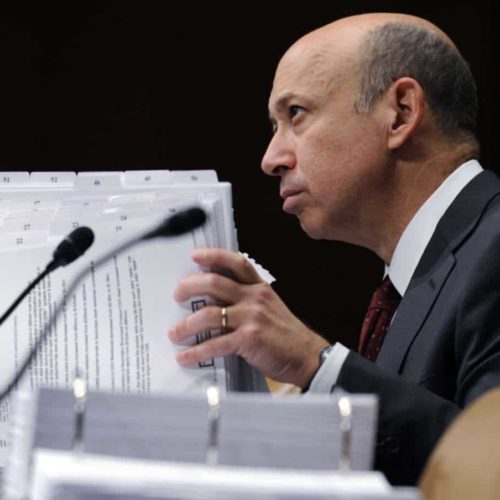Introduction
Five banks that received federal bailout funds during the financial crisis didn’t pay income taxes for one or more years between 2008 and 2010, according to an iWatch News analysis of a new study of tax dodgers.
Wells Fargo & Co., Goldman Sachs Group, PNC Financial Services Group, Capital One Financial Inc. and State Street Corp. were among 78 of America’s largest and most profitable corporations that managed to avoid paying income tax in at least one of those years.
Researchers looked at 280 corporations that reported total pretax U.S. profits of $1.4 trillion. The federal corporate tax code “ostensibly requires big corporations to pay a 35 percent corporate income tax rate, on average, the 280 corporations in our study paid only about half that amount.”
The study was released Thursday by nonpartisan advocacy groups Citizens for Tax Justice and the Institute on Taxation and Economic Policy.
All five financial institutions named were profitable, but still received funds in the form of stock purchases from the Treasury Department’s Troubled Asset Relief Program.
Wells Fargo received the greatest benefit among all 280 companies studied. If the bank were assessed at the usual 35 percent corporate income tax rate, it would have paid the IRS nearly $18 billion, the study said. The banking giant paid no taxes in 2009.
Wells Fargo was also among the most profitable corporations on the list, having collected $21.8 billion in profits over the three-year span. Wells Fargo received a $25 billion government investment in October, 2008 from the TARP program and paid the government back, plus a $2 billion profit, according to Treasury Department records.
In a statement, Wells Fargo disputed the report’s finding and accused the authors of taking “data out of context to advance an agenda.” The company says that over the past 10 years it has paid more than $30 billion in income taxes to federal and state authorities, billions more in other taxes and “it fulfills all tax obligations.”
As to the finding that the company paid no income tax in 2009, the company says the years cited by the study were unusual and reflect “significant losses as a consequence of its acquisition of Wachovia” in December 2008. The purchase of the troubled bank reduced Wells Fargo’s taxable income. Based on results for the first three quarters 2011, Wells Fargo “expects to pay significant income taxes for 2011.”
Goldman Sachs also received government money under the TARP program in the form of a $10 billion investment. It paid it back plus $1.4 billion. The investment bank paid no income taxes in 2008, the same year of the TARP infusion. Over the three-year period Goldman reported $4.9 billion in profit, according to the study.
The other TARP recipients named:
- PNC Financial Services Group received an investment of $7.6 billion from the government and paid it back, plus $745 million. PNC’s three-year profit was just under $8 billion. It paid no income tax in 2009 and 2010, according to the study.
- State Street Corp. received $2 billion from the government and paid it back, plus $124 million. The company’s three-year profit was $731 million. It paid no income tax in 2010, according to the study.
- Capital One Financial Corp received a $3.6 billion investment and paid it back, plus $254 million. The company’s three-year profit was $1.3 billion. It paid no income tax in 2010, according to the study.
A PNC spokesman said the bank “strictly adheres to the tax code” and that for 2009 and 2010 it recorded approximately $1.8 billion in federal income tax expenses. A spokeswoman from Capital One said the bank “fulfills all tax obligations” and that the in the three years, it paid “$2 billion in taxes to federal, state, and foreign jurisdictions” as well as $300 million in taxes for 2010.
Goldman Sachs and State Street did not respond to a request for comment.
Robert McIntyre, director of Citizens for Tax Justice and the report’s lead author said tax breaks enjoyed by the companies that paid less than 35 percent amounted to “wasted money that could have gone to protect Medicare, create jobs and cut the deficit.”
This story has been updated.
Read more in Inequality, Opportunity and Poverty
Finance
Underwriter uncovered three frauds in one loan, suit claims
Shuttered lender had ’24-hour turnaround’ on mortgages
Finance
Worst may be yet to come in foreclosure crisis, study says
Economy still paying price for collapse of housing boom


Join the conversation
Show Comments